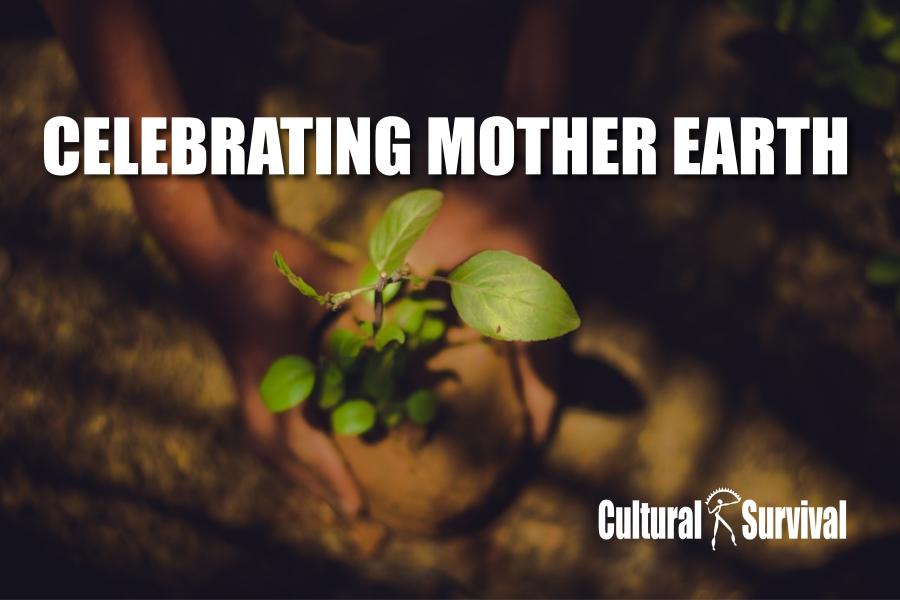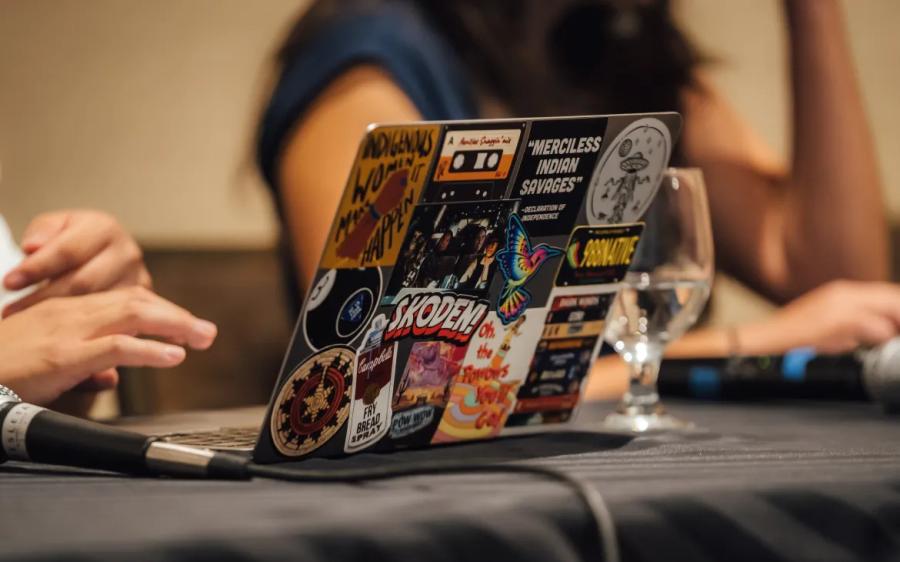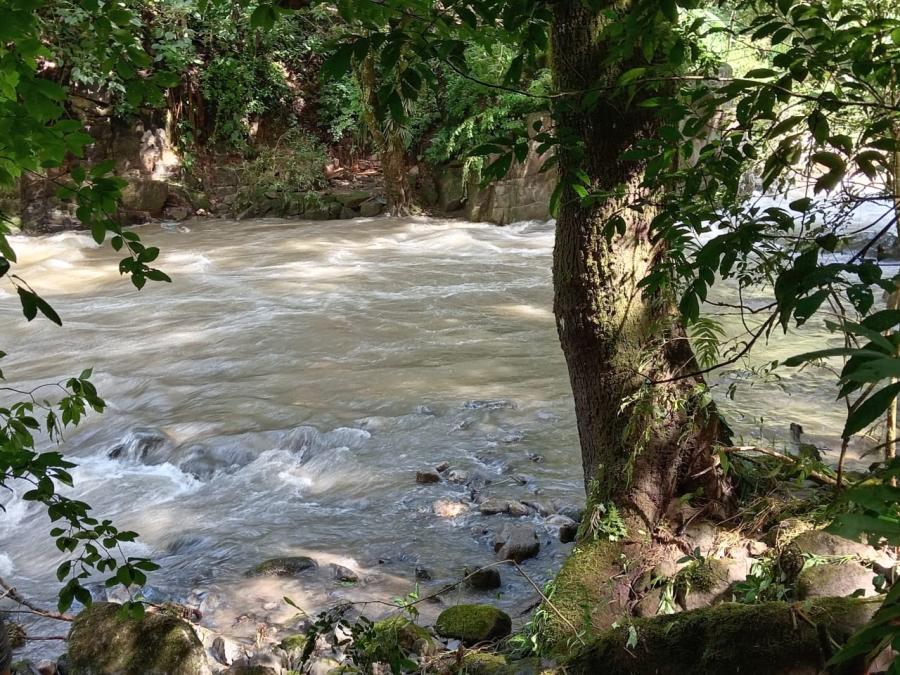
By CS Staff
Imposed western medical systems and the pharmaceutical industry continue to negatively impact the health and prosperity of Indigenous communities. Our people have been forced into a health care system that in most cases doesn't work, as the priority is monetary profit and not health. For many communities, access to modern medicine is scarce. It is often too expensive, and when it is accessible, it can lead to negative outcomes like addiction. The following Indigenous youth fellows are looking to their Elders and their traditional ways of working with medicinal plants. Through their projects, they are informing and inspiring their communities about the plants, Indigenous sciences, and community-based solutions.
Rafael Eduardo Pérez López
Rafael Eduardo Pérez López (Maya Yucatec) is from the community of Ich-ek, Hopelchén, Campeche, Mexico. He spent his childhood just as his parents did, working among the fields. At an early age he began to know the process of working the milpa. Rafael studied at Jerónimo Baqueiro Foster high school in Hopelchén and is currently finishing a bachelor's degree in Sustainable Agricultural Innovation at the Instituto Tecnológico Superior de Hopelchén. He is developing experiences in agroecological management and plans to apply this knowledge in his community.
Rafael's initial knowledge of medicinal plants came from his mother, who was taught by her own mother. On the challenges of continuing the practice of traditional medicine, he says that “because of the new diseases and modern medicine, this knowledge has been torn away from the minds of the newer generation, making them doubt the effectiveness of the plants. They have come to believe that it is easier to go to the pharmacy than to grow your own medicine.” He also says that the arrival of the agroindustry in the community has changed the way of working the land: “The mechanization of the land, the use of agrochemicals, and deforestation has made it more difficult for our Elders to find the plants in our community and in our forests, thus the use of their ancestral medicines has been decreasing.”
Rafael's youth fellowship project created a community garden to preserve ancestral medicinal plants from the region and utilize them in three Mayan communities of Hopelchén for the treatment of illnesses. Through his efforts, he was able to compile information from the knowledge of community members on certain medicinal plants and their consumption. He promoted the preservation and use of medicinal plants for the treatment of common diseases in the targeted communities and conducted workshops on the varieties of medicinal plants in the region and their use, recovering some of the plants that had become more scarce in the community by growing them in the community garden. The garden will serve as a space for the conservation of the medicinal plants and for propagating this medicinal knowledge with generations to come. “It is so important to keep preserving the knowledge that has been inherited from our ancestors. [Through] our dedication to the Mayan milpa, the planting of different varieties of native seeds, our beekeeping, and the practice of our traditional ceremonies, we identify so much with nature,” he says.
Check out Rafael's video: https://www.facebook.com/watch/?v=950701256442423
Free Borsey
Free Borsey (Lummi), whose traditional name is Tsuxwilum, is Lhaq’temish of the Lummi Nation and also descends from the We Wai Kai First Nation of Cape Mudge, British Columbia. Free is a member of the Youth and Indigenous (YAI) podcast, which informs listeners about Indigeneity, climate change, and Native issues and the show has been featured in Vanity Fair.
Free’s project is born out of the reality that Indigenous people have been forced into a system of reliance on western medicine and pharmaceuticals and steered away from growing or gathering their own medicinal plants. Free says that just by exercising the intent of going out and searching for medicinal plants, a community is already contributing to its health physically, mentally, socially, and spiritually. Due to a dependence on pharmaceuticals, many people have lost a lot of knowledge of working with the plants, understanding their properties and usages, and the safe harvesting practices developed by the Elders.
Free and the YAI team, with the support of Cultural Survival, carried out the project “PLANTS,” a podcast series featuring indigenous herbalists and wildcrafters who educate the listeners on the importance of seeking natural healing medicines, safe harvesting practices, and respecting mother nature by introducing yourself to her and her beings of the forest, prairie, and sea. “PLANTS” will also connect with Traditional Ecological Knowledge keepers, who will discuss the traditional uses of native plants and how they are still used today. “Each episode contributes to the reclamation of ancestral knowledge surrounding native plants, provides better mental health and dietary choices (which is a need in Indian country), and educates and inspires people to go out into nature and harvest properly and respectfully,” Free says, adding that he hopes that the relationships built through this project will strengthen people’s ties to each other as well as to the natural world. “With each podcast series we enter with good hearts and never know where our new connections will lead us, but so far we have had excellent feedback from Tribal members, local school teachers and classes, as well as the media,” he says. Each episode aired on the local radio station KZAX for the broader Bellingham, WA community and is available on Apple Podcasts, Spotify, and Google Podcasts.
To listen to “PLANTS,” follow the link: https://open.spotify.com/show/1GleFBvaw4HfOpt8KbQ6Cv
Maria Adriana Cauich Puc
María Adriana Cauich Puc (Maya Yucatec) is from the town of Xcalot-Akal, Hopelchén, Campeche, Mexico. She graduated from the Instituto Tecnológico de Lerma with a degree in Engineering Management specializing in Service Marketing and founded the organization Ko'olel Network - Women Unifying Forces. She conducted the survey, “Lo Público es Nuestro” (What is Public is Ours), to better know the state of sexual and reproductive rights of Indigenous women in Campeche. Maria also received a scholarship from the State Council for Scientific Research and Technological Development of Campeche, which aims to increase the participation of Indigenous women in postgraduate programs, giving her the opportunity to study abroad in Toronto, Canada.
In the community of Xcalot-Akal, Hopelchén, which has approximately 250 inhabitants, doctors from the public health service attend to the community once a month. During that visit, they see patients for just one hour, leaving many unattended. The municipal health services are also understaffed. “Even for a stomach ache, people have to wait hours to be treated at the general hospital,” Maria says. The cost of traveling to the hospital is prohibitively expensive for most in her community. Given this reality, Maria has invested her time in studying medicinal plants.
For her project, “Rescate De La Medicina Tradicional En La Zona Maya De Los Chenes” (Rescuing Traditional Medicine in the Mayan Zone of Los Chenes), Maria visited traditional medicinal men and women in the communities of Xcalot-Akal, Bolonchén de Rejón, Xculoc, and Xcupil to guide her in creating a draft for a traditional medicine recipe book. She documented the various medicinal plants in the community through photography and writing. After compiling the information, she presented the draft to the Elders for their input. She presented the final draft to the community authorities and those who participated in the compilation of this guide book. She hopes that her findings benefit the Indigenous communities where public health services are scarce or where traditional medicine has been lost, so that the general population is aware of the types of plants and the illnesses they cure.
Take a quick look at one of the traditional medicine books by María Adriana:




